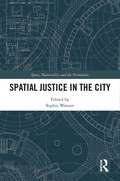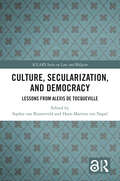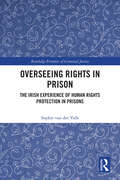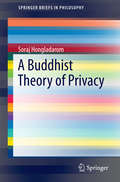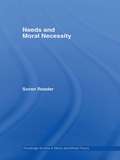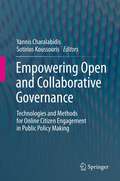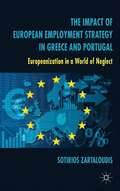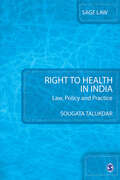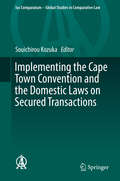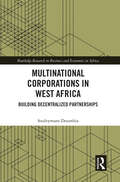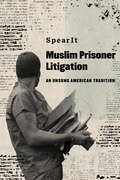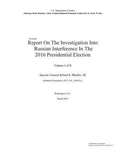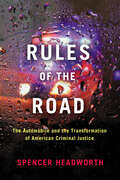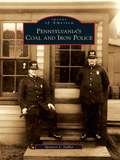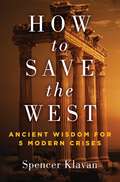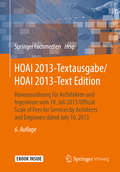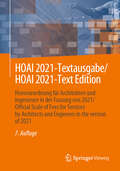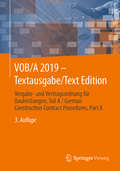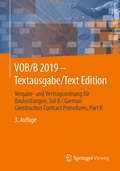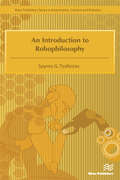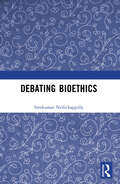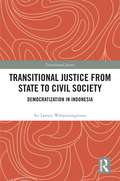- Table View
- List View
Spatial Justice in the City
by Sophie WatsonIn the context of increasing division and segregation in cities across the world, along with pressing concerns around austerity, environmental degradation, homelessness, violence, and refugees, this book pursues a multidisciplinary approach to spatial justice in the city. Spatial justice has been central to urban theorists in various ways. Intimately connected to social justice, it is a term implicated in relations of power which concern the spatial distribution of resources, rights and materials. Arguably there can be no notion of social justice that is not spatial. Philippopoulos-Mihalopoulos has argued that spatial justice is the struggle of various bodies – human, natural, non-organic, technological – to occupy a certain space at a certain time. As such, urban planning and policy interventions are always, to some extent at least, about spatial justice. And, as cities become ever more unequal, it is crucial that urbanists address questions of spatial justice in the city. To this end, this book considers these questions from a range of disciplinary perspectives. Crossing law, sociology, history, cultural studies, and geography, the book’s overarching concern with how to think spatial justice in the city brings a fresh perspective to issues that have concerned urbanists for several decades. The inclusion of empirical work in London brings the political, social, and cultural aspects of spatial justice to life. The book will be of interest to academics and students in the field of urban studies, sociology, geography, planning, space law, and cultural studies.
Culture, Secularization, and Democracy: Lessons from Alexis de Tocqueville (ISSN)
by Sophie van Bijsterveld and Hans-Martien ten NapelFollowing the approach developed by Alexis de Tocqueville, this volume views democracy as a cultural phenomenon. It starts from the assumption that if we are to adequately address concerns about the current state and future of modern Western democracies, we need first to tackle the cultural preconditions necessary for the functioning of a democracy.Since Tocqueville’s time, the book takes the most crucial change in the West to be ‘double secularisation’. Here, this concerns, first, the diminished influence of organised Christianity. Even though secularity was partly a product of Christianity, secularisation is highly significant in terms of the cultural underpinnings of Western democracy. Second, it involves a decreased interest in and knowledge of classical philosophy.Chapters on secularity, family life, civic life, and public spirit focus on central elements of the changed cultural foundation of democracy, exploring issues such as identity politics, the public space, and the role of human rights and natural law in a pluralistic and resilient democracy. The volume concludes with a closer look at the implications of current presentism, that is, the view that only the present counts for the legitimacy and effectiveness of democratic systems. Finally, it asks if double secularisation can also offer fresh opportunities for promoting the conditions of a viable democracy.The book will be of interest to academics and researchers working in the areas of law and religion, constitutional law, political science, history, and philosophy.
Overseeing Rights in Prison: The Irish Experience of Human Rights Protection in Prisons (Routledge Frontiers of Criminal Justice)
by Sophie van der ValkDrawing on Ireland as its primary case study, this book is an in- depth critical examination of how rights protection bodies and mechanisms are experienced by those in prison in Ireland.Through its analysis of the Irish experience, the book considers the implementation of, and challenges faced by, human rights protection within the prison context, and explores some of the reforms that Ireland has undertaken in this area over the past 15 years, including the introduction of a new complaint system and establishment of an Office of the Inspector of Prisons. Using a wealth of information gathered through interviews and surveys of participants in three male prisons, the book sets out personal experiences of such mechanisms and identifies the key barriers to effective rights protection.Offering a detailed presentation of the international framework for the protection of prisoners’ rights through oversight mechanisms, and proposing methods for overcoming common barriers, Overseeing Rights in Prison: The Irish Experience of Human Rights Protection in Prisons will be of interest to students and scholars of criminology, particularly in relation to prisons and human rights.
A Buddhist Theory of Privacy (SpringerBriefs in Philosophy)
by Soraj HongladaromThis book offers a new way to justify privacy based on a theory derived from Buddhist insights. It uses insights obtained from the Buddhist teachings on Non-Self to create an alternative theory of privacy. In doing so, the author first spells out the inherent differences between the Buddhist insights and the beliefs underlying conventional theories of privacy. While Buddhism views the self as existing conventionally through interactions with others, as well as through interrelations with other basic components, non-Buddhist ideas of self are understood as being grounded upon autonomous subjects, commonly understood to be entitled to rights and dignity. In light of this, the book offers ways in which these seemingly disparate concepts can be reconciled, while keeping in mind the need for protecting citizens' privacy in a modern information society. It also argues that the new way of conceptualizing privacy, as presented in this book, would go a long way in helping unravel the difficult concept of group privacy.
Needs and Moral Necessity (Routledge Studies in Ethics and Moral Theory #Vol. 9)
by Soran ReaderNeeds and Moral Necessity analyses ethics as a practice, explains why we have three moral theory-types, consequentialism, deontology and virtue ethics, and argues for a fourth needs-based theory.
Either/Or: A Fragment of Life
by Soren KierkegaardIn Either/Or, using the voices of two characters - the aesthetic young man of part one, called simply 'A', and the ethical Judge Vilhelm of the second section - Kierkegaard reflects upon the search for a meaningful existence, contemplating subjects as diverse as Mozart, drama, boredom, and, in the famous Seducer's Diary, the cynical seduction and ultimate rejection of a young, beautiful woman. A masterpiece of duality, Either/Or is a brilliant exploration of the conflict between the aesthetic and the ethical - both meditating ironically and seductively upon Epicurean pleasures, and eloquently expounding the noble virtues of a morally upstanding life.
Empowering Open and Collaborative Governance: Technologies and Methods for Online Citizen Engagement in Public Policy Making
by Yannis Charalabidis Sotirios KoussourisThe use of information and communication technologies to support public administrations, governments and decision makers has been recorded for more than 20 years and dubbed e-Government. Moving towards open governance roadmaps worldwide, electronic participation and citizen engagement stand out as a new domain, important both for decision makers and citizens; and over the last decade, there have been a variety of related pilot projects and innovative approaches. With contributions from leading researchers, Charalabidis and Koussouris provide the latest research findings such as theoretical foundations, principles, methodologies, architectures, technical frameworks, cases and lessons learnt within the domain of open, collaborative governance and online citizen engagement. The book is divided into three sections: Section one, "Public Policy Debate Foundations," lays the foundations regarding processes and methods for scoping, planning, evaluating and transforming citizen engagement. The second section, "Information and Communication Technologies for Citizen Participation," details practical approaches to designing and creating collaborative governance infrastructures and citizen participation for businesses and administrations. Lastly, the third section on "Future Research Directions of Open, Collaborative ICT-enabled Governance" provides a constructive critique of the developments in the past and presents prospects regarding future challenges and research directions. The book is mainly written for academic researchers and graduate students working in the computer, social, political and management sciences. Its audience includes researchers and practitioners in e-Governance, public administration officials, policy and decision makers at the local, national and international level engaged in the design and creation of policies and services, and ICT professionals engaged in e-Governance and policy modelling projects and solutions.
The Impact of European Employment Strategy in Greece and Portugal
by Sotirios ZartaloudisThrough the new use of new empirical evidence derived from analysing employment services, gender equality policies and flexicurity in Greece and Portugal, this book provides compelling new insights into how European Employment Strategy (EES) can influence the domestic employment policy of European Union member states.
Right to Health in India: Law, Policy and Practice (SAGE Law)
by Sougata TalukdarHealth and human rights are complementary to each other in advancing progress and social justice. Right to Health in India: Law, Policy and Practice examines the fundamental right to health in light of the contemporary human rights discourse. It advocates for a rights-based approach to health that acknowledges the socio-economic dimensions and implications of access to health and dignity of life. This book studies the legislative and policy initiatives designed to protect women, children, HIV/AIDS patients, workers, people with disabilities and all Indian citizens from health hazards and medical malpractice. It explores the constitutional mandates and safeguards regarding right to health in India. The book further discusses the international legal framework on health, analysing it along with the developments in Indian health law. It critically examines the role played by implementing authorities and judiciary in determining the access to and success of right to health in India.
Implementing the Cape Town Convention and the Domestic Laws on Secured Transactions
by Souichirou KozukaThis book offers the analysis of the relationship between the Cape Town Convention and national laws on secured transactions. The first part of the book considers why national implementation is so important in the case of the Cape Town Convention and identifies how innovative the Convention is as a uniform law instrument. The second part includes chapters on those states that are Parties to the Cape Town Convention, which analyse how the Convention is implemented under the domestic law. The third part includes chapters on those states that are not Parties to the Convention, which compare their national laws and the Convention to find unique features of the Cape Town Convention's rules. The fourth part discusses the meaning of Protocols on aircraft, railway rolling stock and space assets from the practitioner's point of view. As a whole, the book offers insights into the new stage of uniform private law and shows the need for further examination of the subject, which will be essential for international and national legislators, academics of comparative and international private law as well as practitioners who are the users of the uniform law regime.
Multinational Corporations in West Africa: Building Decentralized Partnerships (Routledge Research in Business and Economics in Africa)
by Souleymane DoumbiaThis book investigates the relationship that Multinational Corporations form with Local Authorities and governments in West Africa. It argues that informal partnerships at the local level can provide significant socioeconomic benefits to communities and overcome shortfalls in state provision of infrastructure and collective goods and services. Drawing on in-depth case studies in Niger, Ghana and Liberia, the book demonstrates that Decentralized Partnerships benefit from lower transaction costs while maintaining profitability and investment protection, whereas in formal relationships between multinationals and local government, asset specificity and uncertainty are high. By complying with informal rules, which are in many ways just as restrictive as formal rules, Multinational Corporations can adapt and acculturate themselves, become actors of territorial authorities and can get around the incompleteness of the contract that binds them to the state. Reflecting on a range of local projects (educational, infrastructural, health, micro-financial, entrepreneurial), this book provides a rich and detailed assessment of the interactions between Local Authorities and Multinational Firms. The book will be useful to upper-level students and researchers across the fields of economics, business, sociology, anthropology and African studies as well as to development practitioners and regional and international organizations with interest in the functioning of Multinational Corporations in local environments.
South Carolina Driver’s Manual
by South Carolina Department of Motor VehiclesSouth Carolina Driver’s Manual
Muslim Prisoner Litigation: An Unsung American Tradition
by SpearItSince the early 1960s, incarcerated Muslims have used legal action to establish their rights to religious freedom behind bars and improve the conditions of their incarceration. Inspired by Islamic principles of justice and equality, these efforts have played a critical role in safeguarding the civil rights not only of imprisoned Muslims but of all those confined to carceral settings. In this sweeping book—the first to examine this history in depth—SpearIt writes a missing chapter in the history of Islam in America while illuminating new perspectives on the role of religious expression and experience in the courtroom.
Report On The Investigation Into Russian Interference In The 2016 Presidential Election: The Mueller Report
by Special Counsel Robert S. MuellerDPLA is proud to release an enhanced version of the report with improvements, including links to more than 740 of the original documents referenced in footnotes, and format and tagging enhancements to make the document more accessible to those with text impairments. <P><P> To create this enhanced version, DPLA collaborated with the Internet Archive and MuckRock, who provided the links to the footnotes. We discovered that Bill Kasdorf and Thad McIlroy at Publishing Technology Partners had initiated work on a more accessible version and we joined forces. codeMantra implemented the accessibility improvements, and Digital Divide Data provided production support. <P><P> DPLA’s Ebook work and the production of the Mueller Report ebook has been supported by the Alfred P. Sloan Foundation. SimplyE was developed by The New York Public Library. To learn more about Open Bookshelf and other DPLA ebooks offerings, visit ebooks.dp.la.
Rules of the Road: The Automobile and the Transformation of American Criminal Justice
by Spencer HeadworthA thorough and engaging look at an unexpected driver of changes in the American criminal justice system Driving is an unavoidable part of life in the United States. Even those who don't drive much likely know someone who does. More than just a simple method of getting from point A to point B, however, driving has been a significant influence on the United States' culture, economy, politics – and its criminal justice system. Rules of the Road tracks the history of the car alongside the history of crime and criminal justice in the United States, demonstrating how the quick and numerous developments in criminal law corresponded to the steadily rising prominence, and now established supremacy, of the automobile. Spencer Headworth brings together research from sociology, psychology, criminology, political science, legal studies, and histories of technology and law in illustrating legal responses to changing technological and social circumstances. Rules of the Road opens by exploring the early 20th-century beginnings of the relationship between criminal law and automobility, before moving to the direct impact of the automobile on prosecutorial and criminal justice practices in the latter half of the 20th century. Finally, Headworth looks to recent debates and issues in modern-day criminal justice to consider what this might presage for the future. Using a seemingly mundane aspect of daily life as its investigative lens, this creative, imaginative, and thoroughly researched book provides a fresh perspective on the transformations of the U.S. criminal justice system.
Pennsylvania's Coal and Iron Police (Images of America)
by Spencer J. SadlerPennsylvania's Coal and Iron Police ruled small patch towns and industrial cities for their coal and iron company bosses from 1865 to 1931. Armed with a gun and badge and backed by state legislation, the members of the private police force were granted power in a practically unspecified jurisdiction. Set in Pennsylvania's anthracite and bituminous regions, including Luzerne, Schuylkill, Westmoreland, Beaver, Somerset, and Indiana Counties, at a time when labor disputes were deadly, the officers are the story behind American labor history's high-profile events and attention-grabbing headlines. Paid to protect company property, their duties varied but unfortunately often resulted in strikebreaking, intimidation, and violence.
How to Save the West: Ancient Wisdom for 5 Modern Crises
by Spencer KlavanThe coronavirus pandemic conferred enormous power on certain government officials. They have no intention of giving it up.In the space of a few weeks in early 2020, Americans witnessed the imposition of previously unimagined social controls by the biomedical security state—the unelected technocrats who suddenly enjoyed nearly absolute power to incarcerate, isolate, and medicate the entire population. In this chilling new book, a dissident scientist reveals the people and organizations that form the biomedical security state its role in the origin of the pandemic and shaping the government response why it is a threat to science, public health, and individual freedom what can be done to confront and defeat this new Leviathan When covid-19 broke out, Dr. Aaron Kheriaty&’s work put him on the front lines. Realizing that the mental, physical, and economic toll of lockdowns was catastrophic, he began to protest that the cure was worse than the disease—an intolerable heresy. When he refused vaccination because he had natural immunity from a previous infection, the University of California, Irvine, medical school fired him. He fought back, in the courts and in the media, and has become a reliable source of truth amid official obfuscation and censorship. Now it&’s time for all of us to fight back. The deadly and arrogant misrule of the biomedical security state must not become the "new normal."
Thurman Arnold: A Biography
by Spencer Weber WallerThurman Arnold (1891-1969) was a major iconoclast of American law and a great liberal of the 20th century. In this first biography of Arnold, Spencer Weber Waller traces Arnold's life from his birth in Laramie, Wyoming, and explores how his western upbringing influenced his distinctive views about law and power. After studying at Princeton and Harvard Law School, Arnold practiced law in Chicago, served in World War I, and eventually returned to Laramie, where he was a prominent practitioner, mayor, and state legislator in the 1920s.As the rise of national corporations began to destroy the local businesses that were the core of his legal practice, Arnold turned from the courtroom to the academy, most notably at Yale Law School, where he became one of the leading spokesmen for the legal realism movement. Arnold’s work attracted the attention of Franklin Roosevelt, who appointed him to head the Antitrust Division during the New Deal. He went on to establish Arnold, Fortas & Porter, which became the epitome of the modern Washington, DC law firm, and defended pro-bono hundreds of clients accused of Communist sympathies during the McCarthy era.One of the few individuals who shaped 20th century American law in so many of its facets, Arnold's biography is long overdue, and Waller honors his life and legacy with a book that is both vividly narrated and extensively researched.
HOAI 2013-Textausgabe/HOAI 2013-Text Edition: Honorarordnung für Architekten und Ingenieure vom 10. Juli 2013/Official Scale of Fees for Services by Architects and Engineers dated July 10, 2013
by Springer Fachmedien WiesbadenSeit der Öffnung des EU-Binnenmarktes sind ausländische Investoren und ausführende Firmen verstärkt auf dem deutschen Markt tätig. Umgekehrt möchten ausländische Auftraggeber wissen, nach welchen Bestimmungen ihr deutscher Architekt sein Honorar festlegt. Die 6. Auflage der zweisprachigen HOAI-Textausgabe wurde grundlegend überarbeitet. Im 1. Teil finden Sie den Wortlaut der HOAI 2013 in deutscher Fassung, im 2. Teil die englische Übersetzung.
HOAI 2021-Textausgabe/HOAI 2021-Text Edition: Honorarordnung für Architekten und Ingenieure in der Fassung von 2021/Official Scale of Fees for Services by Architects and Engineers in the version of 2021
by Springer Fachmedien WiesbadenSeit der Öffnung des EU-Binnenmarktes sind ausländische Investoren und ausführende Firmen verstärkt auf dem deutschen Markt tätig. Umgekehrt möchten ausländische Auftraggeber wissen, nach welchen Bestimmungen ihr deutscher Architekt sein Honorar festlegt. Die 6. Auflage der zweisprachigen HOAI-Textausgabe wurde grundlegend überarbeitet. Im 1. Teil finden Sie den Wortlaut der HOAI 2021 in deutscher Fassung, im 2. Teil die englische Übersetzung.
VOB/A 2019 - Textausgabe/Text Edition: Vergabe- und Vertragsordnung für Bauleistungen, Teil A / German Construction Contract Procedures, Part A
by Springer Fachmedien WiesbadenDiese zweisprachige Ausgabe der aktuellen VOB/A erleichtert den Dialog bei der Auftragsvergabe. Das Interesse an den Inhalten der VOB ist auch im Ausland groß. In den meisten Ländern gibt es keine vergleichbare Verordnung, um Aufträge zu vergeben, solide Bauverträge abzuschließen und verlässliche bauvertragliche Abmachungen zu vereinbaren.
VOB/B 2019 - Textausgabe/Text Edition: Vergabe- und Vertragsordnung für Bauleistungen, Teil B / German Construction Contract Procedures, Part B
by Springer Fachmedien WiesbadenDiese zweisprachige Ausgabe der aktuellen VOB/B erleichtert den Dialog bei der Auftragsvergabe. Das Interesse an den Inhalten der VOB ist auch im Ausland groß. In den meisten Ländern gibt es keine vergleichbare Verordnung, um Aufträge zu vergeben, solide Bauverträge abzuschließen und verlässliche bauvertragliche Abmachungen zu vereinbaren.
An Introduction to Robophilosophy Cognition, Intelligence, Autonomy, Consciousness, Conscience, and Ethics: Cognition, Intelligence, Autonomy, Consciousness, Conscience And Ethics (River Publishers Series In Automation, Control, And Robotics Is A Series Of Comprehensive Academic And Professional Books Which Focus On The Theory And Applications Of Automation, Control And Robotics. The Series Focuses On Topics Ranging From The Theory And Use Of Control Systems, Automation Engineering, Robotics And Intelligent Machines. Books Published In The Series Include Research Monographs,)
by Spyros G. TzafestasModern robots have arrived at a very matured state both in their mechanical / control aspects and their mental aspects. An Introduction to Robophilosophy explores the philosophical questions that arise in the development, creation, and use of mental – anthropomorphic and zoomorphic- robots that are capable of semiautonomous / autonomous operation, decision making and human-like action, being able to socially interact with humans and exhibit behavior similar to human beings or animals. Coverage first presents fundamental concepts, and an overview of philosophy, philosophy of science, and philosophy of technology. The six principal mental capabilities of modern robots, namely cognition, intelligence, autonomy, consciousness, conscience, and ethics are then studied from a philosophical point of view. They actually represent the product of technological embodiment of cognitive features to robots. Overall, readers are provided a consolidated thorough investigation of the philosophical aspects of these mental capabilities when embedded to robots. This book will serve as an ideal educational source in engineering and robotics courses as well as an introductory reference for researchers in the field of robotics, and it includes a rich bibliography.
Debating Bioethics
by Sreekumar NellickappillyThis book studies the critical issues that dominate contemporary discourse on biomedical ethics. It brings together various debates highlighting the historical, philosophical, scientific, and technological perspectives involved in modern medicine in different societies, with a focus on contemporary medicine in India. The volume provides a comprehensive look into the origin and evolution of bioethics with an examination of how complex bioethical issues are negotiated in different contexts. The author traces the transition from traditional to modern bioethics and examines important bioethical frameworks to deal with moral dilemmas and challenges. He also contemplates the future of bioethics with an emphasis on regulation in practice to prevent repression and exploitation in medicine. A comprehensive study of contemporary approaches to bioethics, the book will be indispensable for students, professionals, and researchers in public health, ethics, biomedical ethics, medicine, philosophy, sociology, public policy, and anthropology.
Transitional Justice from State to Civil Society: Democratization in Indonesia
by Sri Lestari WahyuningroemThis book is the first to offer an in-depth analysis of transitional justice as an unfinished agenda in Indonesia’s democracy. Examining the implementation of transitional justice measures in post-authoritarian Indonesia, this book analyses the factors within the democratic transition that either facilitated or hindered the adoption and implementation of transitional justice measures. Furthermore, it contributes key insights from an extensive examination of ‘bottom-up’ approaches to transitional justice in Indonesia: through a range of case studies, civil society-led initiatives to truth-seeking and local reconciliation efforts. Based on extensive archival, legal and media research, as well as interviews with key actors in Indonesia’s democracy and human rights’ institutions, the book provides a significant contribution to current understandings of Indonesia’s democracy. Its analysis of the failure of state-centred transitional justice measures, and the role of civil society, also makes an important addition to comparative transitional justice studies. It will be of considerable interest to scholars and activists in the fields of Transitional Justice and Politics, as well as in Asian Studies.
